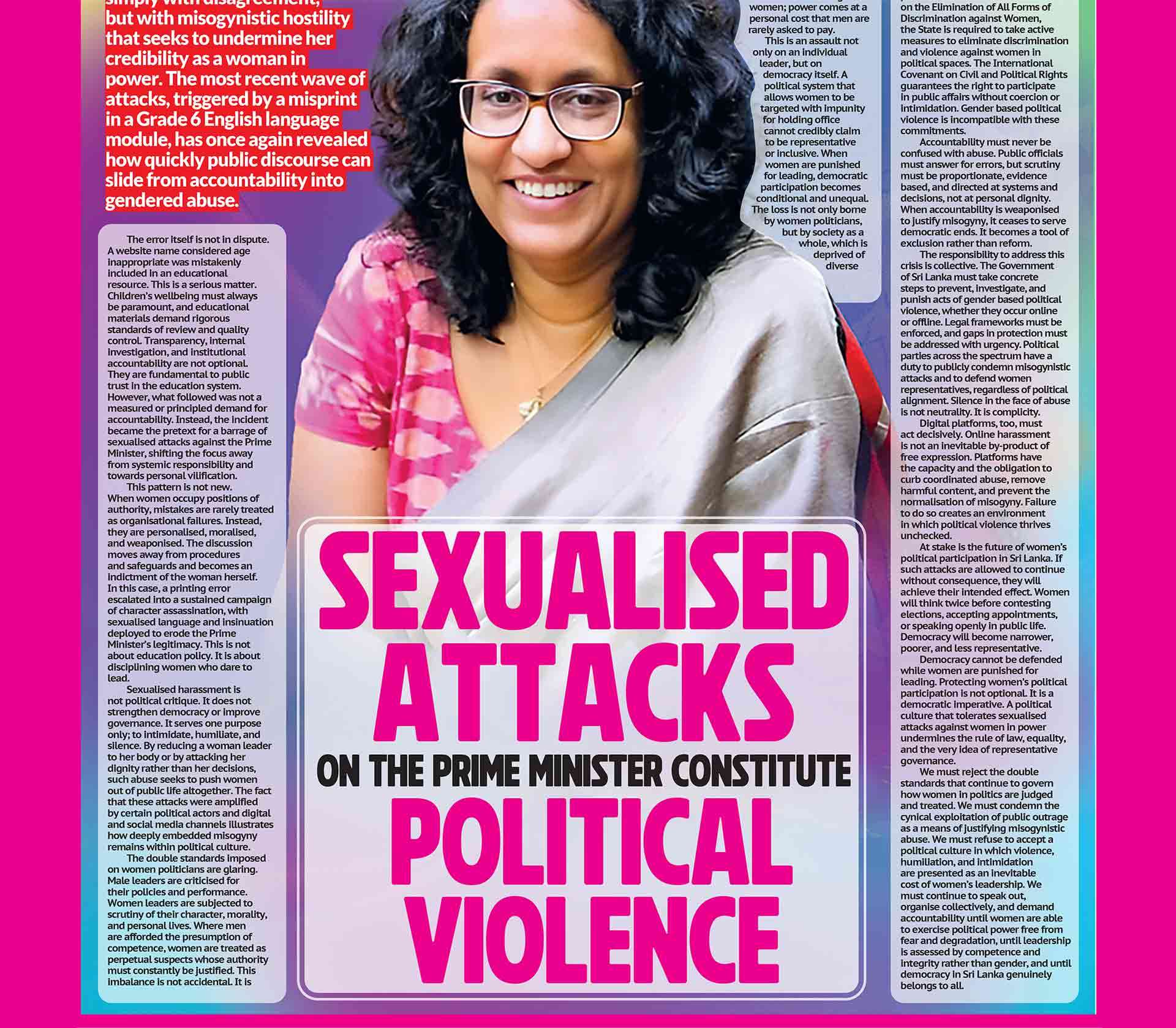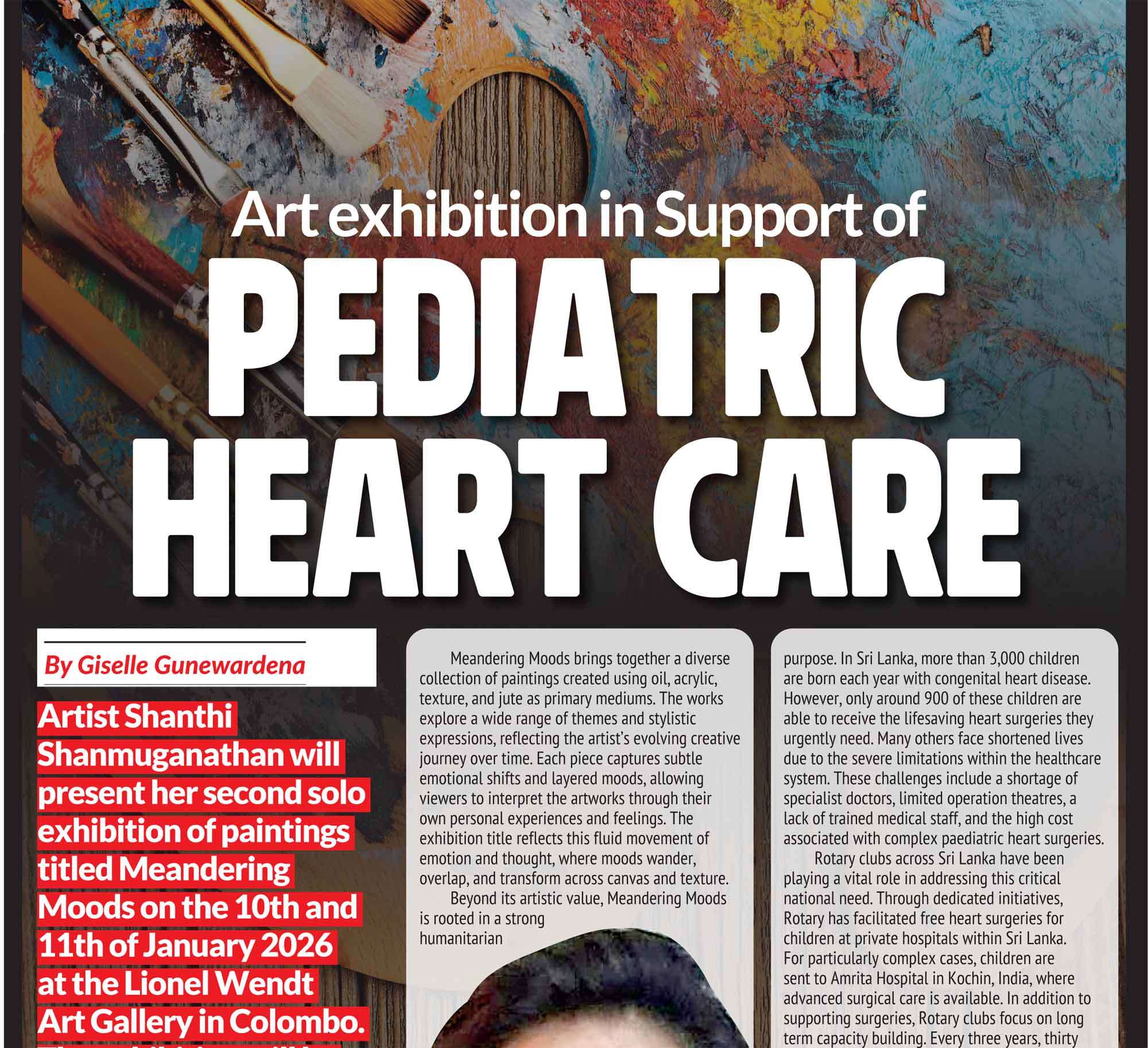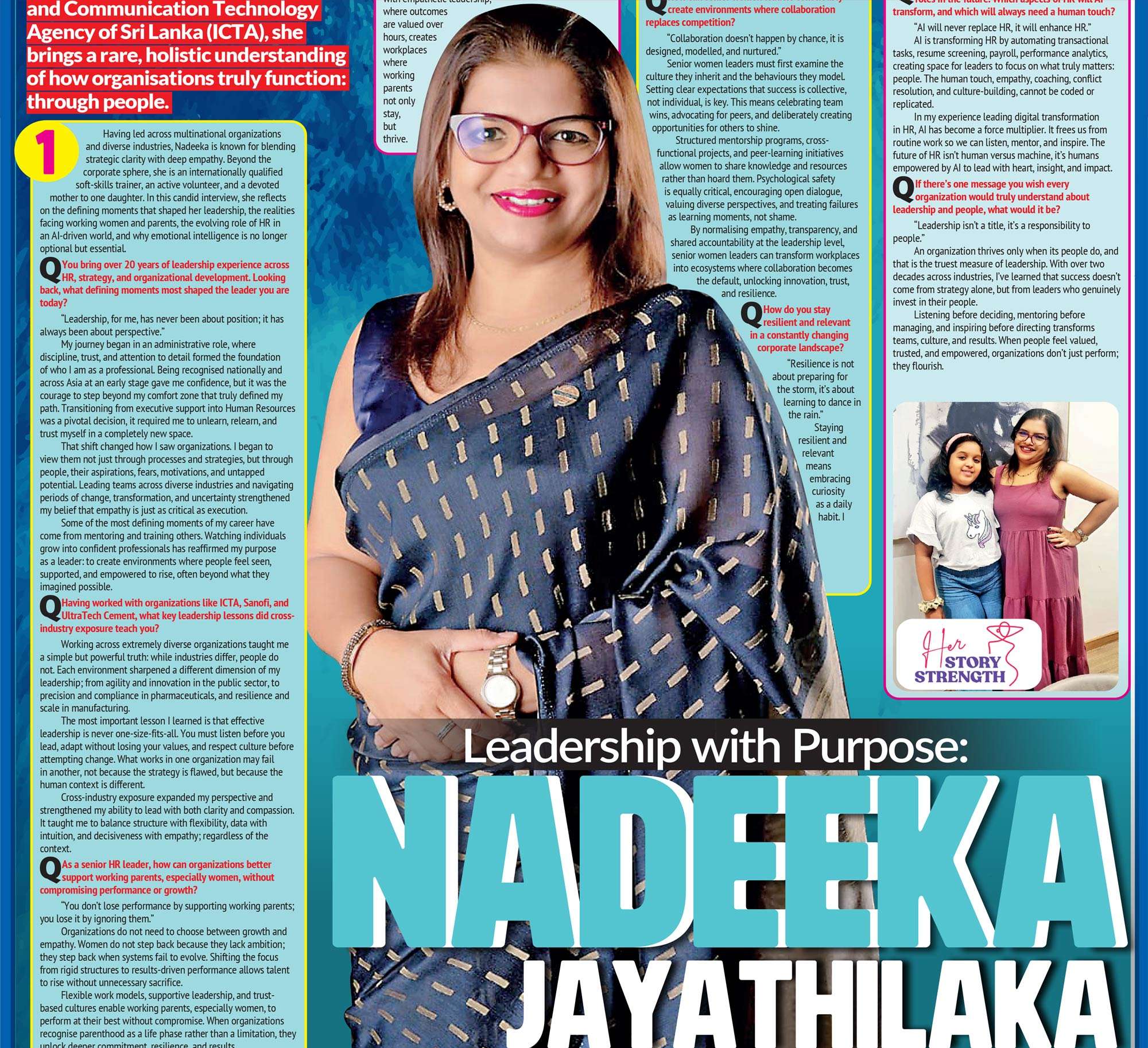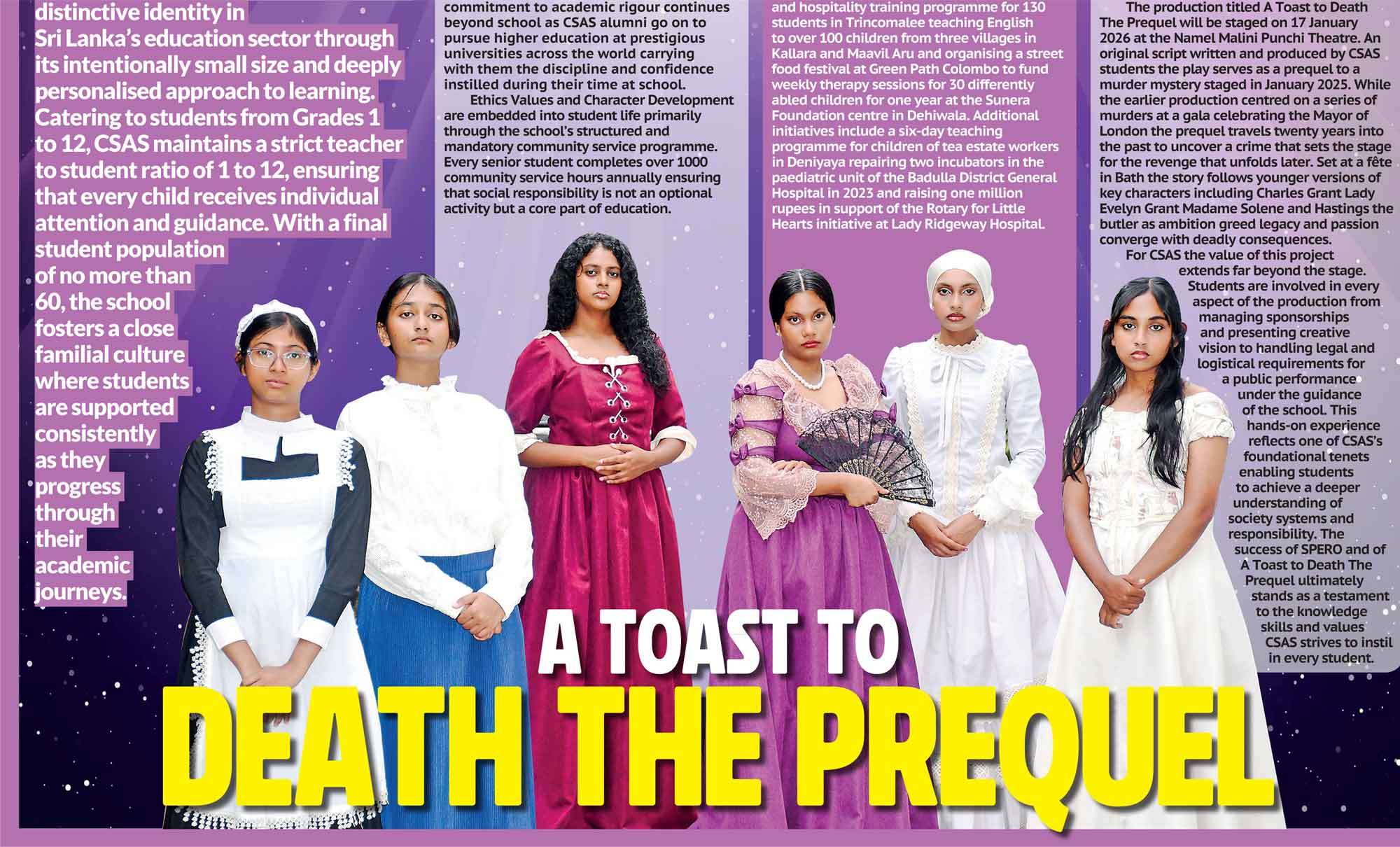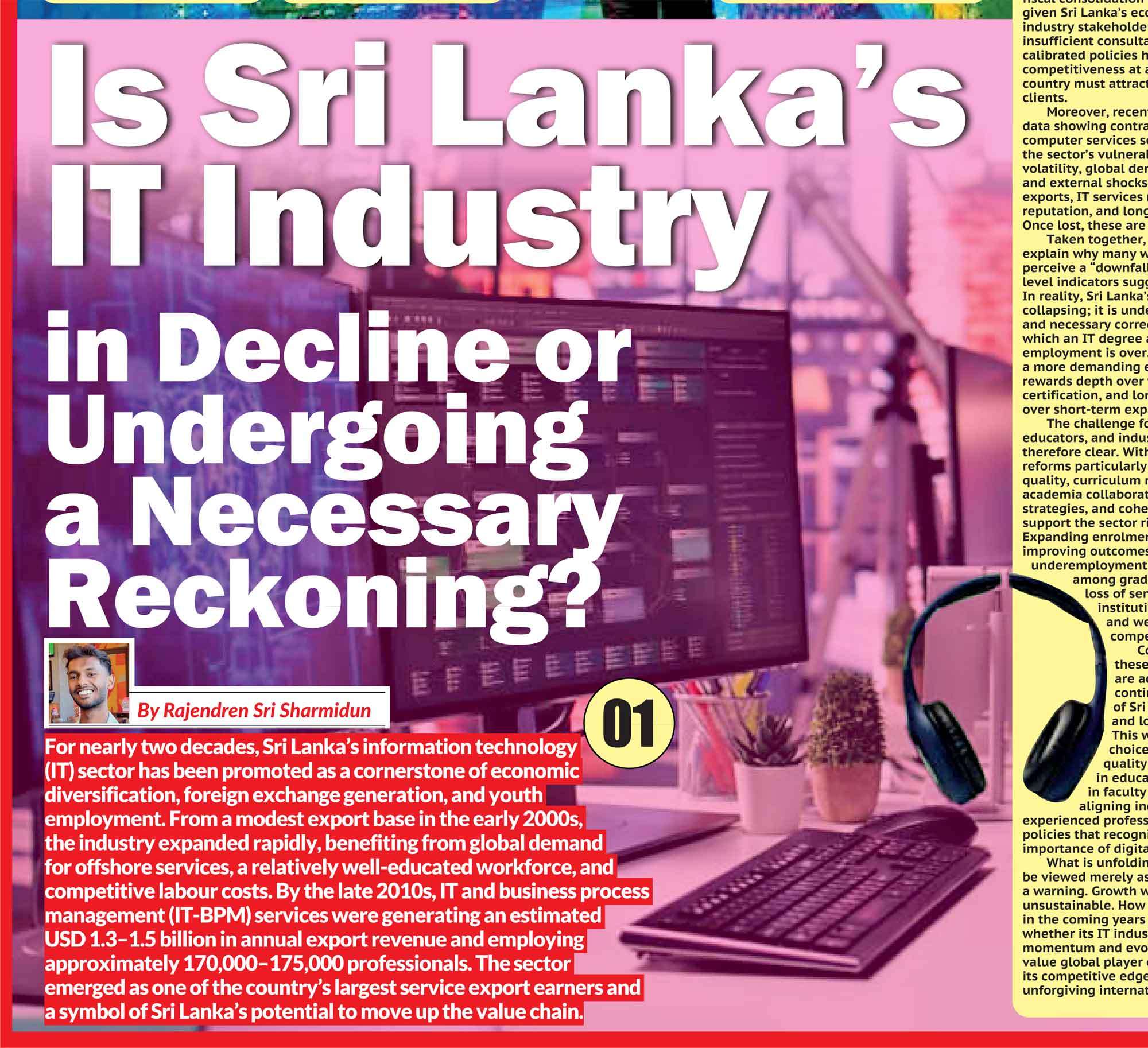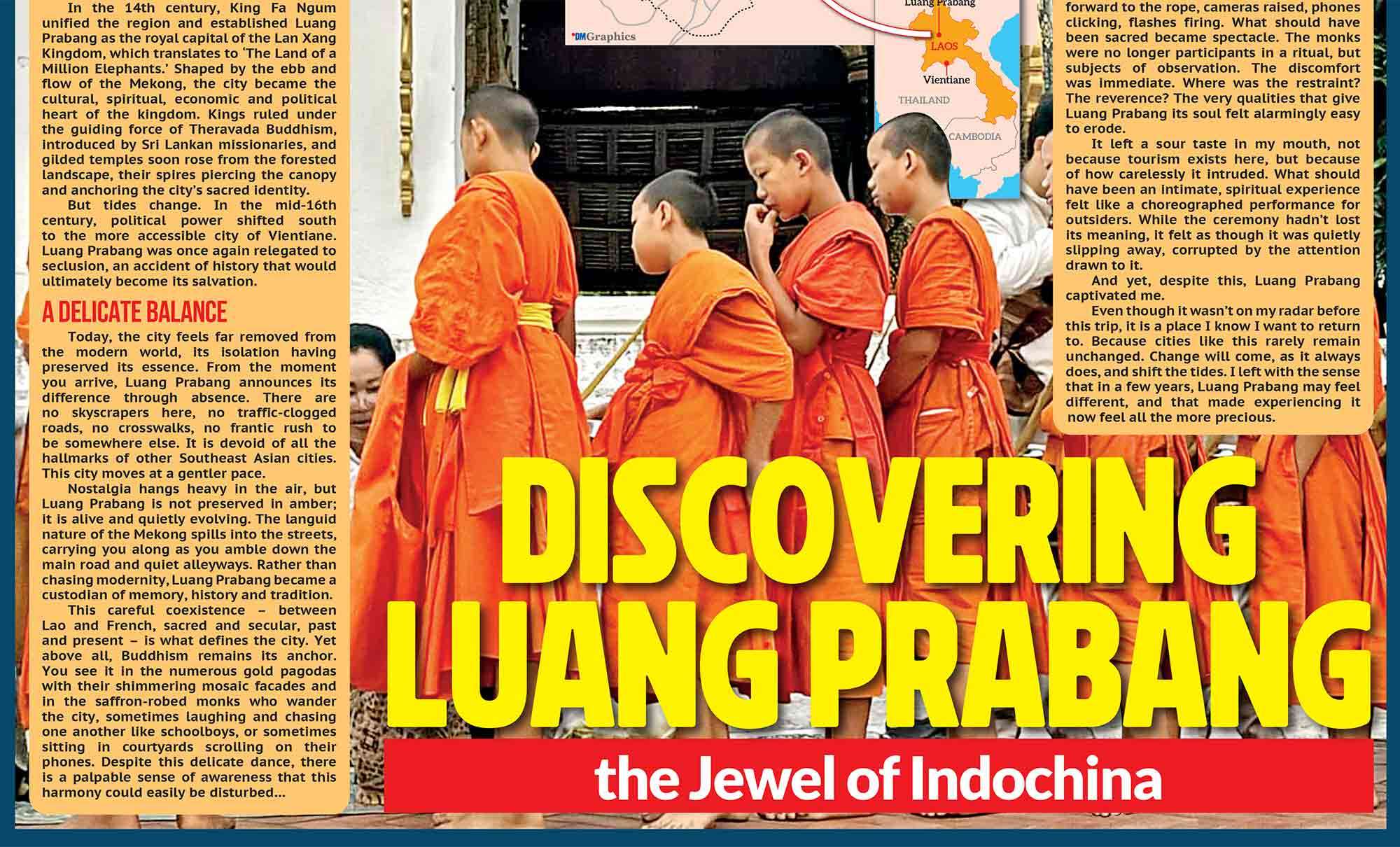
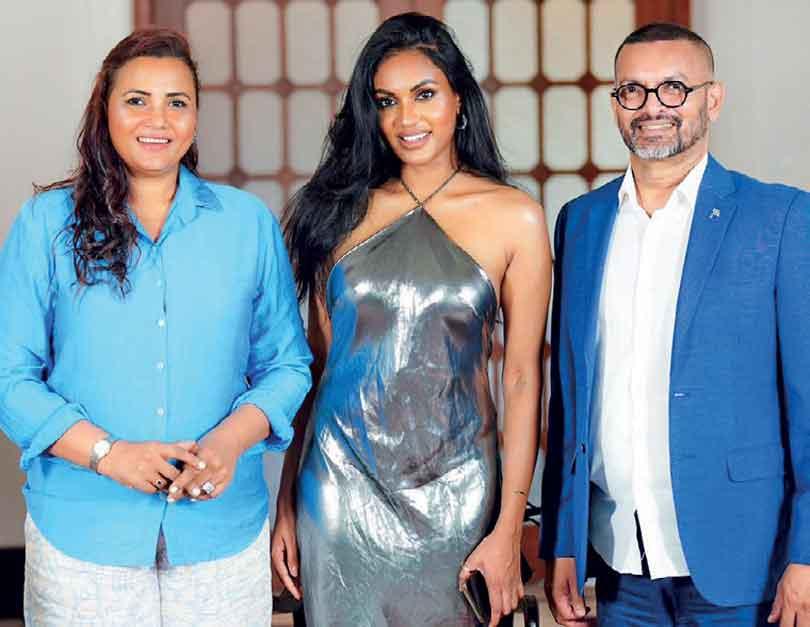

 Sri Lankan beauty queens have recently captured headlines, celebrated for their achievements and occasionally scrutinized for controversies. Among them, Amanda stands out as a prominent figure who came exceptionally close to claiming the global Mrs. World crown. Ishadi Amanda joined Kumar de Silva and Rozanne Diasz on Fame Game for an in-depth conversation about her journey, covering her family and faith, the challenges of balancing motherhood with ambition, adapting between French and Sri Lankan cultures, and the responsibility of representing brown beauty on an international platform.
Sri Lankan beauty queens have recently captured headlines, celebrated for their achievements and occasionally scrutinized for controversies. Among them, Amanda stands out as a prominent figure who came exceptionally close to claiming the global Mrs. World crown. Ishadi Amanda joined Kumar de Silva and Rozanne Diasz on Fame Game for an in-depth conversation about her journey, covering her family and faith, the challenges of balancing motherhood with ambition, adapting between French and Sri Lankan cultures, and the responsibility of representing brown beauty on an international platform.
Q: Tell us a little bit about the Amanda people do not know. We know a lot about you from interviews and social media, but what is something you would like people to know now?
A: One thing people do not always see is how family-centered I am. I am very close to my family, and if I am here today, it is because of their support. My parents have always been my biggest supporters. This is especially significant because, as a Sri Lankan entering the field I chose, fathers can sometimes be restrictive. My father supported me from the beginning and even encouraged me when I decided to enter Mrs. Sri Lanka World on my own. My mother has always been behind me as well. I moved to France when I was eight and completed my studies there. I have always been a hard worker who believes in her dreams. I am Buddhist and try to practice my faith, and I have been a vegetarian for more than ten years.
Q: Is it difficult to be a vegetarian in France?
A: Living as a vegetarian in France is not as hard as people might think. In Sri Lanka, it can actually be more challenging because the cuisine and food availability are different, although the country does have excellent vegetables and many vegetarian options.
Q: Tell us about your lovely son, Kyamm
My son, Kyamm, changed everything for me. Motherhood altered my view of myself. My body changed, my life changed, and I experienced postpartum depression. I have always loved freedom, and becoming a mother initially felt like losing that, as your body and choices revolve around someone else. I worried that I would not be able to pursue my dreams with that responsibility. However, motherhood also brought new confidence and made me feel that I could contribute meaningfully to the world. That is how everything began again for me.
Q: You grew up in France after moving there at the age of eight, and now you have relocated to Sri Lanka with your son. How are you adjusting to life between the two cultures?
A: It is just the two of us, my son and me, so it is complicated, but we make it work. Being in Sri Lanka without a large support system makes you realize how much trust is required when leaving your child with someone, so I bring my son with me wherever I can. He even joins me for appearances and travel. Although I lived in France for most of my life, I always remained connected to Sri Lankan culture. I can read, write, and speak Sinhala, which has helped me enormously. In France, I worked as a translator for refugees, translating from Sinhala to French and vice versa. This work was meaningful and well paid, and it also allowed me to stay connected to both cultures.
Q: How did your interest in makeup and beauty begin? Was your goal from the start to become a makeup artist, or did it start simply with wanting to look beautiful?
A: I have always loved makeup. My mother worked as a bridal dresser, so I grew up surrounded by that world, and the artistry fascinated me. Seeing brown-skinned girls from Sri Lanka succeed on global platforms made me believe that I could achieve something as well. I began entering pageants, and Miss South Asian in France, which was referred to as Miss India France, was the first competition I participated in. I won that title in 2009 when I was eighteen. After that, modelling followed. Makeup and beauty were the natural starting points for me.
Q: You’ve won titles, you married and had a child. Did you ever feel like those life events would close doors on your ambitions?
A: Yes, and that is why I believe my journey is inspiring for other women. Many women feel that after marriage and motherhood their time and attention must be entirely devoted to family and that their ambitions should be set aside. I have always said that you are a woman first, and your identity and personal fulfilment matter. Confidence in your body and mindset is crucial. Making decisions can be difficult, as you have to consider your parents, your partner, and societal expectations, but if you have a dream or talent, do not let age or marriage stop you from pursuing it. In Sri Lanka in particular, there is a mentality that after the age of thirty, things are over, and women must stay at home, be serious, and focus on their husband and children. I have challenged that narrative. I have received a strong response from women who say that my path has encouraged them to continue dreaming, make decisions for themselves, and not simply follow a prescribed script.
Q: How has the public responded to you? Have you received support, faced criticism, or experienced comparisons with previous titleholders?
A: The response has been a mix. I have received enormous support from Sri Lankans both at home and abroad, which has been heartwarming. However, there has also been criticism and comparisons. People often compare me to previous Mrs. Sri Lanka winners such as Rosy Senanayake or Caroline Jurie, and those comparisons can be unfair. Rosy Senanayake has a particular kind of poise, and we are of different ages with different life experiences.
Caroline is celebrated for her win, and people question why someone who was a runner-up is as well-known as she is. I do not take these comparisons to heart. I believe it is important to remember that everyone is unique, and there is no need to follow someone else’s path. Social media has also brought negativity, especially when people expect Mrs. Sri Lanka contestants to fit a particular mould or behave in a certain way. There are societal expectations regarding how a wife and mother should act. However, I believe confidence and dignity are far more important than conforming to narrow standards. In other cultures, female performers and actresses remain active and celebrated in public life well into their fifties and beyond. There is no reason why women in Sri Lanka cannot do the same.
Q: Do you face male attention or uncomfortable approaches, and how do you handle that as a public figure?
A: I actually have a large female fan base, more than male fans, since I got married. How I handle attention is about setting boundaries and knowing my values. I have always been a social person who loves to share, but I learned early how to read people. I started working at the age of sixteen, so I can usually understand someone’s intentions. Saying no gracefully is an art; you can be social without being naive. When you are famous, there will always be a few bad experiences and people who try to take advantage, and I have had such moments. However, staying true to my dignity, being clear about my boundaries, and maintaining professionalism have helped me manage these situations.
Q: Do you want to act in Sri Lankan films? Any particular roles?
A: I would love to act in a Sri Lankan film, ideally in a role with depth, such as a historical character or a substantial part rather than just a cameo. I worked on a visual project that resonated strongly, and the public response was very positive; the timing also worked in my favour. I want to do meaningful work, and step by step, I hope to bring that to Sri Lankan screens.
Q: Tell us about your husband and how he deals with your public life.
A: My husband, Ravinath, was born in France and works in a bank. He is very supportive, although it can be challenging because I have been in Sri Lanka attending events and travelling with our son. We met through mutual acquaintances, and our relationship developed naturally from there. He understands who I am and what my life entails; he knew me before my rise to prominence and is aware of the public attention that comes with it. I do not think he feels insecure because he trusts and understands the person I am.
Q: If you had not pursued pageants and titles, what would you have been doing in Paris?
A: I would have been working as a translator, which I already did in France, and I would have continued my work in makeup. I conducted masterclasses and participated in bridal shows in Italy and other countries.
I want to continue this path in Sri Lanka by building a makeup brand focused on Sri Lankan skin tones, exporting it internationally, and creating opportunities for other Sri Lankan creatives, including designers, makeup artists, and stylists. Pageants gave me visibility, and now I want to use that visibility to benefit others.
Q: Any advocacy or charity work you’re passionate about?
A: Mental health is very important to me, particularly postpartum depression, which many women in Sri Lanka do not talk about. I have worked with charities that support families during and after hospital stays, as parents often find it difficult to return to normal life once a child has been in hospital for a long time. I plan to establish a foundation in the future. At the moment, my schedule is busy with school programmes, photoshoots, and promoting myself because I am new to this field in Sri Lanka. However, step by step, I will dedicate more time to charity work that supports parents and children as well as mental health initiatives.
Q: You have served as a judge for Aurudu Kumari pageants this season. Do you think these pageants should be held on the same scale as the Miss or Mrs Sri Lanka events?
A: I believe there is value in developing Aurudu Kumari-style pageants. They provide a way to discover young talent, both in personality and beauty, and can offer excellent opportunities. However, many young contestants participate primarily because they want to become actors or gain fame. Acting is not simple and requires proper training. That is why pageants can be educational if they also prepare participants for the realities of acting and public life.
The conversation covered Amanda’s cross-cultural life between France and Sri Lanka, motherhood, public scrutiny and the responsibility she feels as a representative of Sri Lankan brown beauty. Watch the full episode by scanning the QR code below.



